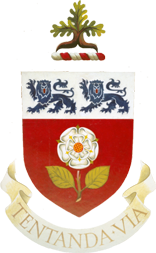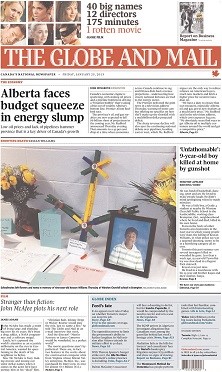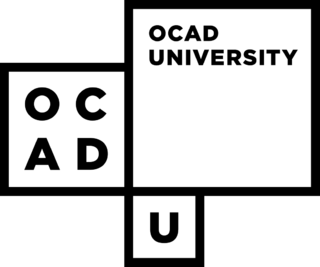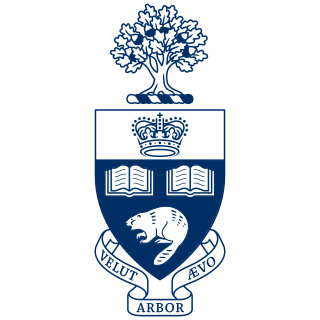History
Academic Matters was launched in November 2005 to fill a critical need in the Canadian media coverage of universities. The idea for the magazine came from the recognition that while universities are influential in many ways, there was no independent Canadian journal that examined university issues in a serious but accessible and visually engaging manner for both academics and the general public.
Published by the Ontario Confederation of University Faculty Associations, Academic Matters has a circulation of 17,000 readers, including professors, academic librarians and others interested in higher education issues across Canada. The magazine's editorial board consists of highly regarded academics and journalists who have worked at The Globe and Mail , Canadian Broadcasting Centre, National Film Board of Canada, and The New York Times .
A bi-annual publication, the thematic issues of Academic Matters have included the education "arms race" and public perceptions of higher education; "Generation Next" – the new wave of faculty now entering universities; threats to academic freedom in Canada, the United States, United Kingdom and Australia; the impact of technology on universities; and diversity and equity on university campuses.
Articles in Academic Matters have been picked up by media in both the United States and Canada, including The Chronicle of Higher Education , The Globe and Mail, National Post, and Toronto Star .

York University, also known as YorkU or simply YU, is a public research university in Toronto, Ontario, Canada. It is Canada's third-largest university, and it has approximately 55,700 students, 7,000 faculty and staff, and over 325,000 alumni worldwide. It has 11 faculties, including the Faculty of Liberal Arts and Professional Studies, Faculty of Science, Lassonde School of Engineering, Schulich School of Business, Osgoode Hall Law School, Glendon College, Faculty of Education, Faculty of Health, Faculty of Environmental and Urban Change, Faculty of Graduate Studies, School of the Arts, Media, Performance and Design, and 28 research centres.

The Globe and Mail is a Canadian newspaper printed in five cities in western and central Canada. With a weekly readership of approximately 2 million in 2015, it is Canada's most widely read newspaper on weekdays and Saturdays, although it falls slightly behind the Toronto Star in overall weekly circulation because the Star publishes a Sunday edition, whereas the Globe does not. The Globe and Mail is regarded by some as Canada's "newspaper of record".

Ontario College of Art & Design University, commonly known as OCAD University or OCAD, is a public art university located in Toronto, Ontario, Canada. The university's main campus is spread throughout several buildings and facilities within downtown Toronto. The university is a co-educational institution which operates three academic faculties, the Faculty of Art, the Faculty of Arts and Science, and the Faculty of Design. The university also provides continuing education services through its School of Continuing Studies.
Academic freedom is a moral and legal concept expressing the conviction that the freedom of inquiry by faculty members is essential to the mission of the academy as well as the principles of academia, and that scholars should have freedom to teach or communicate ideas or facts without fear of repression, job loss, or imprisonment. While the core of academic freedom covers scholars acting in an academic capacity — as teachers or researchers expressing strictly scholarly viewpoints —, an expansive interpretation extends these occupational safeguards to scholars' speech on matters outside their professional expertise. Especially within the anglo-saxon discussion it is most commonly defined as a type of freedom of speech, while the current scientific discourse in the Americas and Continental Europe more often define it as a human right with freedom of speech just being one aspect among many within the concept of academic freedom.

The Peter A. Allard School of Law is the law school of the University of British Columbia. The faculty offers the Juris Doctor (J.D.) degree. The faculty features courses on business law, tax law, environmental and natural resource law, indigenous law, Pacific Rim issues, and feminist legal theory.
The Charlatan is the independent weekly student newspaper at Carleton University in Ottawa, Ontario.
The Varsity is the official student newspaper of the University of Toronto, in publication since 1880.
An academic senate, sometimes termed faculty senate, academic board or simply senate, is a governing body in some universities and colleges, typically with responsibility for academic matters and primarily drawing its membership from the academic staff of the institution.

An academic library is a library that is attached to a higher education institution and serves two complementary purposes: to support the curriculum and the research of the university faculty and students. It is unknown how many academic libraries there are worldwide. An academic and research portal maintained by UNESCO links to 3,785 libraries. According to the National Center for Education Statistics, there are an estimated 3,700 academic libraries in the United States. In the past, the material for class readings, intended to supplement lectures as prescribed by the instructor, has been called reserves. In the period before electronic resources became available, the reserves were supplied as actual books or as photocopies of appropriate journal articles. Modern academic libraries generally also provide access to electronic resources.

Oakwood Collegiate Institute is a public high school in Toronto, Ontario, Canada. It is located near the neighbourhoods of Regal Heights, Oakwood-Vaughan and Bracondale Hill.

The University of Toronto is a public research university in Toronto, Ontario, Canada, located on the grounds that surround Queen's Park. It was founded by royal charter in 1827 as King's College, the first institution of higher learning in Upper Canada. Originally controlled by the Church of England, the university assumed its present name in 1850 upon becoming a secular institution. As a collegiate university, it comprises 11 colleges each with substantial autonomy on financial and institutional affairs and significant differences in character and history. The university maintains three campuses, the oldest of which, St. George, is located in downtown Toronto. The other two satellite campuses are located in Scarborough and Mississauga.

The University of Guelph is a comprehensive public research university in Guelph, Ontario, Canada. It was established in 1964 after the amalgamation of Ontario Agricultural College (1874), the MacDonald Institute (1903), and the Ontario Veterinary College (1922), and has since grown to an institution of almost 30,000 students and employs 830 full-time faculty as of fall 2019. It offers 94 undergraduate degrees, 48 graduate programs, and 6 associate degrees in many different disciplines.

The National Association of Scholars (NAS) is an American non-profit politically conservative advocacy organization, with a particular interest in education. It opposes a perceived political correctness on college campuses and supports a return to mid-20th-century curricular and scholarship norms, and an increase in conservative representation in faculty.

The Faculty of Law is a faculty of the University of Windsor in Windsor, Ontario, Canada. The first class of students matriculated in 1968, and the current building was opened in 1970. The Faculty has grown immensely over the past 50 years, increasing its national profile through its innovations in research and from thousands of alumni across Canada and the world. The 2017 endowment to the Faculty of Law was $10.2 million. The Faculty is also the current academic host institution of the Canadian Bar Review (CBR), the most frequently cited journal by the Supreme Court of Canada.

Higher education in Ontario includes postsecondary education and skills training regulated by the Ministry of Colleges and Universities and provided by universities, colleges of applied arts and technology, and private career colleges. The current minister is Jill Dunlop who was appointed in June 2021. The ministry administers laws covering 22 public universities, 24 public colleges, 17 privately funded religious universities, and over 500 private career colleges. 18 of the top 50 research universities in Canada are in Ontario.

Higher education in Canada includes provincial, territorial, indigenous and military higher education systems.

The Ontario Confederation of University Faculty Associations (OCUFA) is a Canadian non-profit organization that represents 17,000 teachers, researchers, and librarians through its interaction with the Ontario government, opposition parties, related agencies, and associations. OCUFA assists its twenty-eight member faculty associations with the coordination of media relations and research for collective bargaining and provides its members with a discount program through Edvantage. OCUFA also publishes Academic Matters, a biannual journal that covers higher education topics across Canada, and a weekly electronic newsletter, OCUFA Report, with specific content for Ontario members.
The Society for Academic Freedom and Scholarship (SAFS) is a Canadian non-profit organization founded to promote academic freedom and intellectual excellence on Canadian institutions of higher education.

Robert Harold Blackburn was a Canadian academic librarian. He is best known for serving as the Chief Librarian at the University of Toronto from 1954 to 1981.
The Academy of Medicine of Toronto was a professional and social organisation for medical doctors founded in the 19th century. It was formed in March 1907 by the amalgamation of four Toronto medical societies. The academy published its own journal, Bulletin of the Academy of Medicine, as well as speeches, articles, essays and other work by Academy members writing on medical and non-medical subjects. The academy's renowned library facility closed in 1991.














